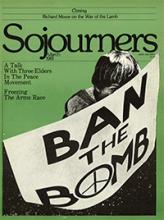In many ways this is a strange time to be talking, even skeptically, about something as grandiose as stopping the nuclear arms race. Many people are in despair about the coming four years under Ronald Reagan. In less than a month, Reagan's administration has announced its plans to hike military spending and gut federal funding of vital aid to the poor.
Reagan has consistently opposed ratification of the long-dormant SALT II treaty. That treaty can now be declared clinically dead. In its place, Reagan has promised, like every president since Truman, to pursue genuine nuclear disarmament. But there is no reason to believe he will do any more toward realizing this goal than did his predecessors.
In this political environment one could well ask, "Why even talk about disarmament?" The only options seem to be to give up in despair or to stage a tactical retreat and salvage whatever crumbs one can from the militarist onslaught.
Only the hardest of heart could fail to empathize with the fear and despair felt by the poor, who will be the most immediate victims of Reagan's economic and military policies. But history, in ironic fashion, shows that the times of greatest danger can also be the times of greatest opportunity.
With the death of the SALT II treaty, there is a vacuum in the discussion of arms control. What seems to be lacking is a clear-cut alternative to the SALT process that could fill that vacuum.
But there is such an alternative. It is the idea of a complete moratorium on the testing, production, and deployment of all new or additional nuclear weapons and weapons delivery systems.
Read the Full Article

